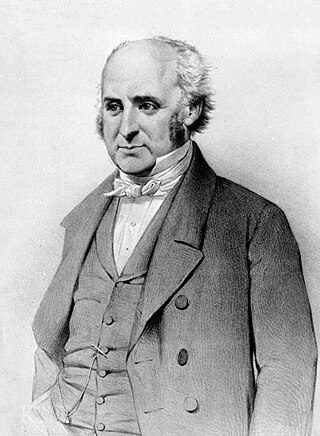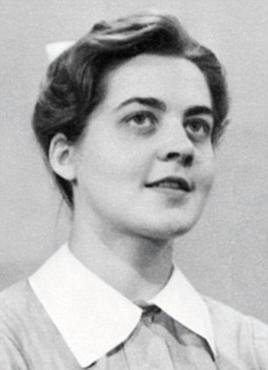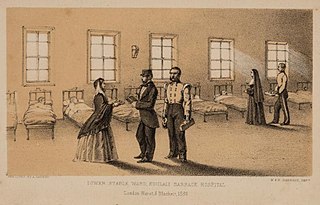
The Royal London Hospital is a large teaching hospital in Whitechapel in the London Borough of Tower Hamlets. It is part of Barts Health NHS Trust. It provides district general hospital services for the City of London and Tower Hamlets and specialist tertiary care services for patients from across London and elsewhere. The current hospital building has 845 beds and 34 wards. It opened in February 2012.

Anglican religious orders are communities of men or women in the Anglican Communion who live under a common rule of life. The members of religious orders take vows which often include the traditional monastic vows of poverty, chastity and obedience, or the ancient vow of stability, or sometimes a modern interpretation of some or all of these vows. Members may be laity or clergy, but most commonly include a mixture of both. They lead a common life of work and prayer, sometimes on a single site, sometimes spread over multiple locations. Though many Anglicans are members of religious orders recognized by the Anglican Communion, others may be members of ecumenical Protestant or Old Catholic religious orders while maintaining their Anglican identity and parochial membership in Anglican churches.

Nursing in Australia has evolved in training and regulation since the 19th century.
The Community of St Michael and All Angels was an Anglican religious order of nuns in South Africa. The Community was founded by Allan Webb, the second Bishop of Bloemfontein in 1874 – although the idea was first mooted by Webb's predecessor, Edward Twells. In a letter he'd written in 1868, Twells highlighted the need for a Sisterhood to set up schools for girls in Bloemfontein.

Robert Bentley Todd was an Irish-born physician who is best known for describing the condition postictal paralysis in his Lumleian Lectures in 1849 now known as Todd's palsy.
Lucy Osburn was an English nurse trained at the School of Nursing founded by Florence Nightingale. She is regarded as the founder of modern nursing in Australia.
The Society of Saint Margaret (SSM) is an order of women in the Anglican Church. The religious order is active in England, Haiti, Sri Lanka, and the United States and formerly Scotland.
The Sisters of Charity of Our Lady of Mercy is a Roman Catholic religious institute founded by Bishop John England of the Diocese of Charleston in South Carolina, in 1829 as the Sisters of Our Lady of Mercy. In 1949 the word "Charity" was added to the congregation's name, in order to identify it more explicitly with others that follow the Rule of Life of St. Vincent de Paul. They came to serve throughout the Eastern United States. The members of the congregation use the postnominal initials of O.L.M.
The word "nurse" originally came from the Latin word "nutrire", meaning to suckle, referring to a wet-nurse; only in the late 16th century did it attain its modern meaning of a person who cares for the infirm.
Frances Margaret Taylor, whose religious name was Mother Magdalen of the Sacred Heart was an English nurse, editor and writer, nun, and Superior General and founder of the Roman Catholic religious congregation the Poor Servants of the Mother of God.

Sister Henrietta, CSM and AA was a British nursing pioneer and Anglican religious sister. Through her influence and pressure the first state registration of nurses and midwives in the world was brought about when the Cape of Good Hope Medical and Pharmacy Act of 1891 passed into law. She was a member of the Anglican Community of St Michael and All Angels.

Jennifer Louise Worth RN RM was a British memoirist. She wrote a best-selling trilogy about her work as a nurse and midwife practising in the poverty-stricken East End of London in the 1950s: Call the Midwife, Shadows of the Workhouse and Farewell to The East End. A television series, Call the Midwife, based on her books, began broadcasting on BBC One on 15 January 2012. After leaving nursing, she re-trained as a musician.
Former religious orders in the churches of the Anglican Communion are those communities of monks, nuns, friars, or sisters, having a common life and rule under vows, whose work has ended and whose community has been disbanded. In a very few cases this is due to the termination of the work for which the community was established, but in most cases it is due to amalgamation or the death of the final remaining member of the community.
The history of nursing in the United Kingdom relates to the development of the profession since the 1850s. The history of nursing itself dates back to ancient history, when the sick were cared for in temples and places of worship. In the early Christian era, nursing in the United Kingdom was undertaken by certain women in the Christian Church, their services being extended to patients in their homes. These women had no real training by today's standards, but experience taught them valuable skills, especially in the use of herbs and folk drugs, and some gained fame as the physicians of their era. Remnants of the religious nature of nurses remains in Britain today, especially with the retention of the job title "Sister" for a senior female nurse.
Hannah Grier Coome founded the Anglican Sisterhood of St. John the Divine, and was its first mother superior.

Mother Mary Francis Bridgeman R.S.M. was a nun with the Sisters of Mercy, a Roman Catholic religious congregation of women, founded in Ireland by Catherine McAuley and a pioneer nurse during the Crimean War of 1854-1856.

Eliza Roberts (1802–1878) was an English nurse who was among the first group of nurses to accompany Florence Nightingale to Scutari Hospital during the Crimean War. Nightingale regarded her as the best of her nurses and appointed her Head Nurse.








